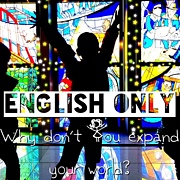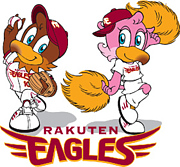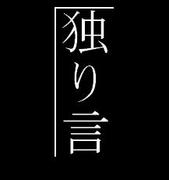Both mixi and facebook were established in the same year, 2004. However, facebook has got far more users than mixi so far in spite of its security matters. I’d like to learn the detail why that happened. Is that because of anonimity or face-recognition system? I wanna change the world, so I wanna hear your opinions.
|
|
|
|
コメント(20)
I dont know if my opinion is available or not. but I think mixi is in the narrow world. some of people on mixi show their faces. but most of them dont. For me, thinking about only being online, mixi is comfortable. but facebook is not. In addition to it, I set my contributions are within my friends on facebook. I dont want to show them to all over the world. But mixi is safe, I think.
I've noticed that Japanese people value their privacy more than Westerners, and FB may not appeal to a lot of Japanese people because of that. Yes, Facebook has had security breaches in the past, but as you can see it's still the most popular platform across the globe. Before, people in different countries couldn't connect with each other, but FB managed to do that. Connecting with other people is easier than ever, and it's fun and interactive in a way other platforms are not. Face-recognition is another messy situation FB should address, but that's another topic for another day. lol
Besides Facebook catering to mostly English speakers, Facebook has also gotten the backing of investors as well as enough press etc to beat a website like Mixi that only focused on its on region’s audience. I also think that Facebook has proven to be profitable more than Mixi which could have made it more popular. Facebook was not only ran to grow and demolish competitors, it has features that keep users coming back for more. A
I also read an article detailing the slowed progress of Facebook due to the security issues as well it becoming less about social interactions and more about ads and such.
I also read an article detailing the slowed progress of Facebook due to the security issues as well it becoming less about social interactions and more about ads and such.
As It's already said in the posts above, Facebook has brought us together with people all around the globe, and some business people today also show FB profile for introducing themselves and getting to know others better . Security things do exists but do not really matter when people just want to stay connected whenever and wherever they are. Moreover, majority of users doing Mixi are Japanese as Mixi does not have language option for English. I think this is the plain reason why Mixi cannot become like FB.
Mixi is popular... in japan
Facebook is less popular in japan than social networks with more anonymity - this is a cultural trend I believe
When Facebook started out, only registered university students could join, in order to connect with each other across other universities in cities and states (I.e. people had to know each other IRL)
Then it changed and expanded to allow anyone to join and connect, even without any connection at all
Facebook is less popular in japan than social networks with more anonymity - this is a cultural trend I believe
When Facebook started out, only registered university students could join, in order to connect with each other across other universities in cities and states (I.e. people had to know each other IRL)
Then it changed and expanded to allow anyone to join and connect, even without any connection at all
Hello,I'm Ted. How's going? Doing alright ?
Well,I don't know what's the reasons so curious about the popularity of mixi or Facebook. First of all mixi was established by Japanese company. But Facebook was established in USA. And English users are so great number than Japanes e users. Of course all the foreigners could become the members. Plus,at the beginning of time,mixi was too strict to get mem
Well,I don't know what's the reasons so curious about the popularity of mixi or Facebook. First of all mixi was established by Japanese company. But Facebook was established in USA. And English users are so great number than Japanes e users. Of course all the foreigners could become the members. Plus,at the beginning of time,mixi was too strict to get mem
- mixiユーザー
- ログインしてコメントしよう!
|
|
|
|
☆ENGLISH ONLY☆ 更新情報
-
最新のアンケート
























